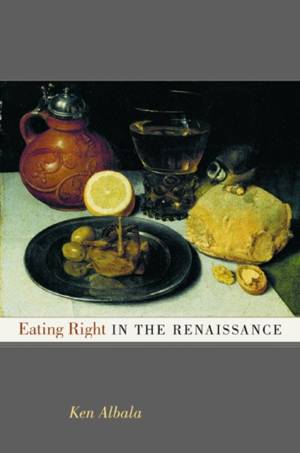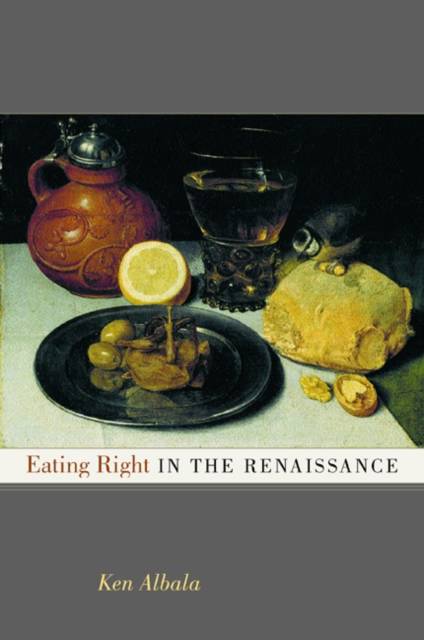
- Afhalen na 1 uur in een winkel met voorraad
- Gratis thuislevering in België vanaf € 30
- Ruim aanbod met 7 miljoen producten
- Afhalen na 1 uur in een winkel met voorraad
- Gratis thuislevering in België vanaf € 30
- Ruim aanbod met 7 miljoen producten
Zoeken
Omschrijving
Eating right has been an obsession for longer than we think. Renaissance Europe had its own flourishing tradition of dietary advice. Then, as now, an industry of experts churned out diet books for an eager and concerned public. Providing a cornucopia of information on food and an intriguing account of the differences between the nutritional logic of the past and our own time, this inviting book examines the wide-ranging dietary literature of the Renaissance. Ken Albala ultimately reveals the working of the Renaissance mind from a unique perspective: we come to understand a people through their ideas on food.
Eating Right in the Renaissance takes us through an array of historical sources in a narrative that is witty and spiced with fascinating details. Why did early Renaissance writers recommend the herbs parsley, arugula, anise, and mint to fortify sexual prowess? Why was there such a strong outcry against melons and cucumbers, even though people continued to eat them in large quantities? Why was wine considered a necessary nutrient? As he explores these and other questions, Albala explains the history behind Renaissance dietary theories; the connections among food, exercise, and sex; the changing relationship between medicine and cuisine; and much more.
Whereas modern nutritionists may promise a slimmer waistline, more stamina, or freedom from disease, Renaissance food writers had entirely different ideas about the value of eating right. As he uncovers these ideas from the past, Ken Albala puts our own dietary obsessions in an entirely new light in this elegantly written and often surprising new chapter on the history of food.
Eating Right in the Renaissance takes us through an array of historical sources in a narrative that is witty and spiced with fascinating details. Why did early Renaissance writers recommend the herbs parsley, arugula, anise, and mint to fortify sexual prowess? Why was there such a strong outcry against melons and cucumbers, even though people continued to eat them in large quantities? Why was wine considered a necessary nutrient? As he explores these and other questions, Albala explains the history behind Renaissance dietary theories; the connections among food, exercise, and sex; the changing relationship between medicine and cuisine; and much more.
Whereas modern nutritionists may promise a slimmer waistline, more stamina, or freedom from disease, Renaissance food writers had entirely different ideas about the value of eating right. As he uncovers these ideas from the past, Ken Albala puts our own dietary obsessions in an entirely new light in this elegantly written and often surprising new chapter on the history of food.
Specificaties
Betrokkenen
- Auteur(s):
- Uitgeverij:
Inhoud
- Aantal bladzijden:
- 324
- Taal:
- Engels
- Reeks:
- Reeksnummer:
- nr. 2
Eigenschappen
- Productcode (EAN):
- 9780520229471
- Verschijningsdatum:
- 1/02/2002
- Uitvoering:
- Hardcover
- Formaat:
- Genaaid
- Afmetingen:
- 161 mm x 229 mm
- Gewicht:
- 671 g

Alleen bij Standaard Boekhandel
+ 162 punten op je klantenkaart van Standaard Boekhandel
Beoordelingen
We publiceren alleen reviews die voldoen aan de voorwaarden voor reviews. Bekijk onze voorwaarden voor reviews.











